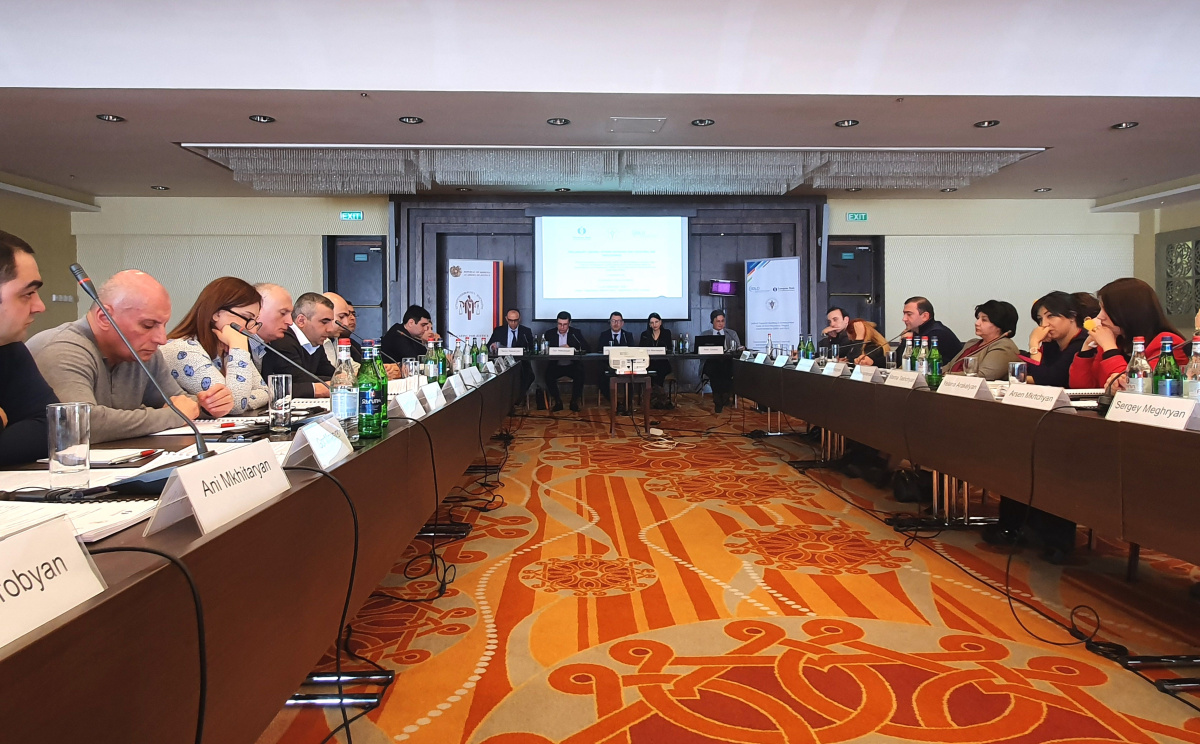
Corruption is a fundamental challenge to sustaining peace and achieving sustainable development. It has an inherently corrosive effect on societies, increasing inequality, undermining trust and fuelling discontent and insecurity. The world is experiencing a crisis of trust in public institutions when we can least afford it. Rebuilding peoples’ confidence in government was highlighted as a major challenge by global leaders in the UN 75th Anniversary Declaration.
Corruption tends to occur at higher rates in countries experiencing conflict and can itself impact their ability to respond to emergencies. In a context where public trust in government and institutions is already waning, continued corruption threatens to derail the achievement of the Sustainable Development Agenda.
The rule of law is critical to that effort. It can help eliminate discrimination in law and in practice and enable institutions to better understand and meet people’s needs. It can strengthen their ability to tackle corruption and to resolve grievances before they can fester into conflict.
IDLO assists countries around the world in taking comprehensive measures to prevent, investigate and prosecute corruption. Our anti-corruption programmes support the 2030 Agenda for Sustainable Development and contribute to the United Nations Convention against Corruption, the UN’s 75th Anniversary Declaration and the political declaration of the Special Session of the General Assembly Against Corruption (UNGASS).
In 2022, IDLO supported Armenia, the Bahamas, Moldova, Mongolia and Somalia, among other countries, with their respective anti-corruption agendas. In Ukraine, IDLO continued to work with the Government on anti-corruption reforms at the local, national and regional levels, ensuring transparency in reconstruction efforts and promoting the country’s long-term recovery (see page 10).
In Armenia, IDLO supported the establishment of a new Specialized Anti-Corruption Court that is meant to play a central role in countering corruption. To ensure that the court upholds the highest standards of justice, IDLO assisted it to select staff and replenish the list of judges qualified to adjudicate anti-corruption cases. It also helped vet staff for managerial and investigative positions at the new Anti-Corruption Committee, which is mandated to investigate and combat corruption.
In addition, IDLO helped the Prosecutor General’s Office Department for Confiscation of Property of Illicit Origin to enhance its long-term capacity to reliably, transparently and vigorously pursue civil procedures to confiscate property of illicit origin. This was done by participating in the selection process of prosecutorial candidates, organizing an exposure visit to Italy and providing strategic advisory support, professional mentoring sessions and tailored English language classes for prosecutors.
In the Bahamas, IDLO assisted the Government to strengthen the integrity of public institutions with the aim of promoting the rule of law and good governance. Reforms are underway to align the country’s legislation with international standards on institutional transparency, integrity and accountability by strengthening key areas including public disclosure, access to justice and whistleblower protections.
In Moldova, working with the Government, IDLO helped to launch the Independent Anti-Corruption Advisory Committee, a landmark step towards combatting endemic corruption. The Committee assesses chronic patterns of corruption and compiles evidence for actions to counter them. In 2022, IDLO helped the Committee publish and disseminate its first two reports: “The Offshore Republic: Review of Factors Leading to Systemic Fraud and Money Laundering in Moldova’s Banking, Financial and Insurance Sectors” and “Disrupting Dysfunctionality: Resetting Republic of Moldova’s Anti-Corruption Institutions”.
Mongolia has long faced challenges in implementing anti-corruption reforms. Detection of cases has lagged, and prevention has been weak. Through IDLO’s assistance, the country is working to address this. Drawing on longstanding ties with national justice sector agencies, IDLO probed a sensitive set of issues and found that inadequate clarity around the responsibilities of different institutions was a major stumbling block.
Even though Mongolia is committed to international conventions, it lacks a comprehensive legal and institutional framework to prevent and respond to corrupt practices, resulting in cases being lost in the system. To address this challenge, IDLO worked with national partners to assess these concerns, draft new legislation clarifying responsibilities and internal procedures and set quality standards and timelines for seeking international legal assistance in corruption cases.
Another concern has been the public perception of judicial corruption. To strengthen accountability and restore public trust, IDLO developed procedures for the newly established Judicial Disciplinary Committee to resolve cases of misconduct and hold fair and efficient disciplinary proceedings for judges.
Considering that the media play an important role in spotlighting corruption, IDLO organized a training for young journalists to build their capacity to conduct data analysis and online research. The training also provided an opportunity for members of the media to learn about Mongolia’s Public Information Law and asset and income declarations. Participants gave high ratings to the course and went on to demonstrate their newly acquired skills by covering alleged corruption in recent housing developments, among other issues.
In Somalia, IDLO helped to institutionalize new digital platforms and data management systems that have bolstered compliance with financial reporting requirements.
In 2022, IDLO also increasingly engaged with policy forums on anti-corruption – including the 9th session of the Conference of States Parties to the UN Convention against Corruption and inter-sessional meetings as well as the Anti-Corruption working groups of the G20 and Organisation for Economic Co-operation and Development (OECD) – to promote learning and knowledge exchanges, build new partnerships and advocate for rule of law solutions.

